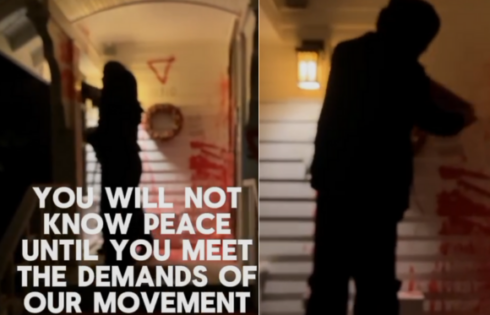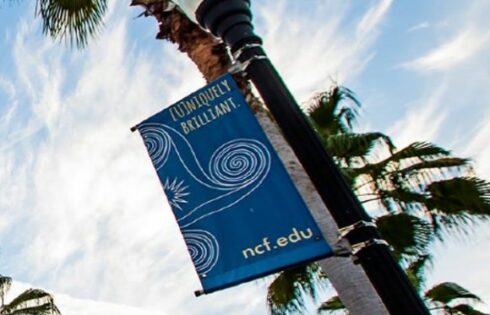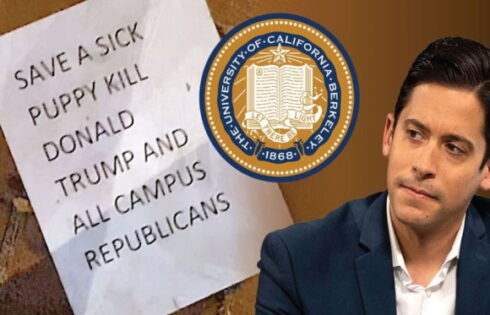
Here’s a surprise (not): It seems being force-fed theories from popular “anti-racist” screeds like Robin DiAngelo’s “White Fragility” doesn’t sit well with some — white — students.
The Chronicle of Higher Education’s Beckie Supiano sought out Jennifer Sims, a sociology professor at the University of Alabama at Huntsville, to get advice on dealing with student “pushback” in that area. Sims had recently tweeted out some thoughts on the matter.
Some of yall with big opinions on what newly aware white folks should read first to learn abt structural racism have never taught Intro level race classes to hundreds of racially illiterate white students AND IT SHOWS
— Jenn Sims (@RavenclawSoc23) June 29, 2020
Unfortunately, Professor Sims offers Supiano little of substance.
For one, Sims comes off as thinking that touting her “expertise” is all she needs when faced with student “resistance” or “pushback.” But more significantly, she includes one incident of obvious student racism (upon which her back-and-forth with Supiano heavily relies) as a legitimate example of student “pushback” (“Black women [are] simply less attractive,” a student had said).
It’s not, of course.
Sims notes that in her early days, after “literally just g[iving] a statistic,” some students “rolled their eyes” and “shook their heads.” As a result, she now puts a note on her syllabi indicating that “sociology is a social science built on empirical evidence and data, not her opinion.”
If Sims didn’t offer a bit of her history, this would seem rather innocuous. As it is, the syllabi addition appears to say “I am the professor with degrees in an evidence- and data-based subject area, so don’t challenge me.” Fortunately, most of the (13 total) students who chimed in on Sims’ Rate My Professors page don’t feel this way. Their ratings are mostly positive, including comments such as “she’s willing to answer all of your questions.”
MORE: College gets grant to establish ‘White Racial Literacy Project’
Interestingly, however, one “average” rating notes “sometimes topics of discussion were not approached is a respectful way, so be wary,” while another (“awesome”) rating says the course isn’t recommended “to anyone who leans heavily on right-wing/conservative politics” as “many of the racial issues discussed […] remain in existence because of conservative policies.” (Comments such as these may be why Sims raises the issue of student evaluations to Supiano: Professors can get “dinged” on them by students resistant to anti-racism lessons, which can affect their careers.)
I havent assigned White Fragility, but I developed an extra credit assignment based on it for Intro. It greatly reduced white students’ hostility to studying racism bc contrary to popular but inexperienced opinion most folks need to master basics b4 theyre ready for advanced work
— Jenn Sims (@RavenclawSoc23) June 29, 2020
If Sims is (rightly) concerned about “empirical evidence and data,” then “White Fragility” isn’t a good model to highlight. Something “scientific” must be able to be proven false. Robin DiAngelo’s concept defies this principle as it “insists that when a person denies they are racist, this denial is actually proof of both racism and white fragility.”
That’s but one of its many faults.
The same skepticism should apply to Sims’ remark about “racial illiteracy.” If a student expresses a belief in color-blindness, a concept lauded by one of the greatest civil rights icons of the age but now considered anathema by the academy, is that student “racially illiterate”? What if a student doesn’t believe in “systemic” racism? Or the prevalence of “white privilege”?
In a sane world, it would come as no surprise that many white students would “resist” concepts and theories which portray them as evil incarnate. Of course, a sane world also would not make Robin DiAngelo a wealthy woman, nor laud an obvious fiction like The 1619 Project.
But who said we’re living in a sane world?
MORE: Why Robin DiAngelo’s ‘White Fragility’ is dangerous
IMAGE: Shutterstock.com






Please join the conversation about our stories on Facebook, Twitter, Instagram, Reddit, MeWe, Rumble, Gab, Minds and Gettr.